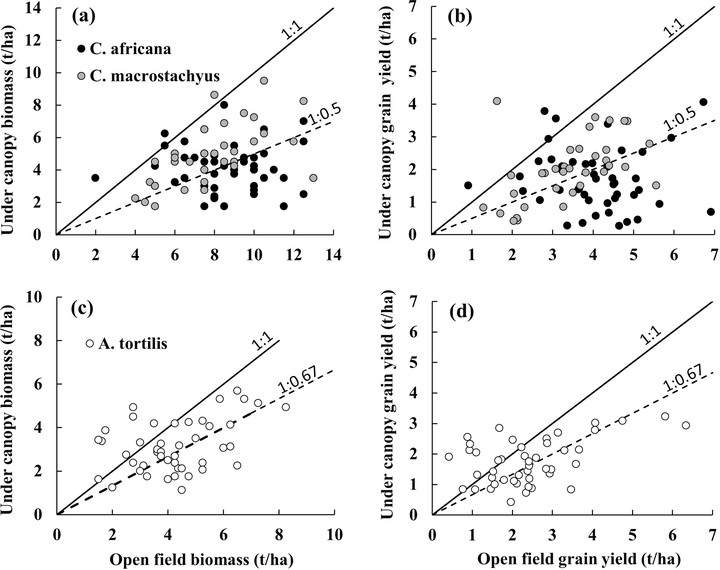Crop vs. tree. Can agronomic management reduce trade-offs in tree-crop interactions?

Abstract
Scattered trees dominate smallholder agricultural landscapes in Ethiopia, as in large parts of sub-Saharan Africa (SSA). While the inclusion of scattered trees could provide a viable pathway for sustainable intensification of these farming systems, they also lead to trade-offs. We carried out a study to; 1) explore the rationale of farmers to maintain on-farm trees beyond crop yield; 2) quantify the impact of agronomic practices on the outcome of tree-crop interactions; and 3) analyse partial economic trade-offs for selected on-farm tree species at farm scale. We recorded agronomic practices within the fields of 135 randomly selected farms from seedbed preparation to harvesting. A multivariate analysis showed that farmers maintained on-farm trees because of their direct timber, fencing, fuelwood, and charcoal production values. Trees generally had a significant negative effect on maize yield. Mean grain yields of 1683, 1994 and 1752 kg/ha under the canopies of Cordia, Croton and Acacia, respectively, were significantly lower than in their paired open field with mean yields of 4063, 3415 and 2418 kg/ha. Besides, more income from trees was accompanied by less income from maize, highlighting trade-offs. However, agronomic practices such as early planting, variety used, improved weed management, fine seedbed preparation and higher rates of nitrogen fertilizer significantly reduced yield penalties associated with trees. We found an inverse relationship between land size and on-farm tree density, implying that the importance of trees increases for land-constrained farms. Given the expected decline in per capita land size, scattered trees will likely remain an integral part of these systems. Thus, utilizing ‘good agronomic practices’ will be vital to minimize tree-crop trade-offs in the future.